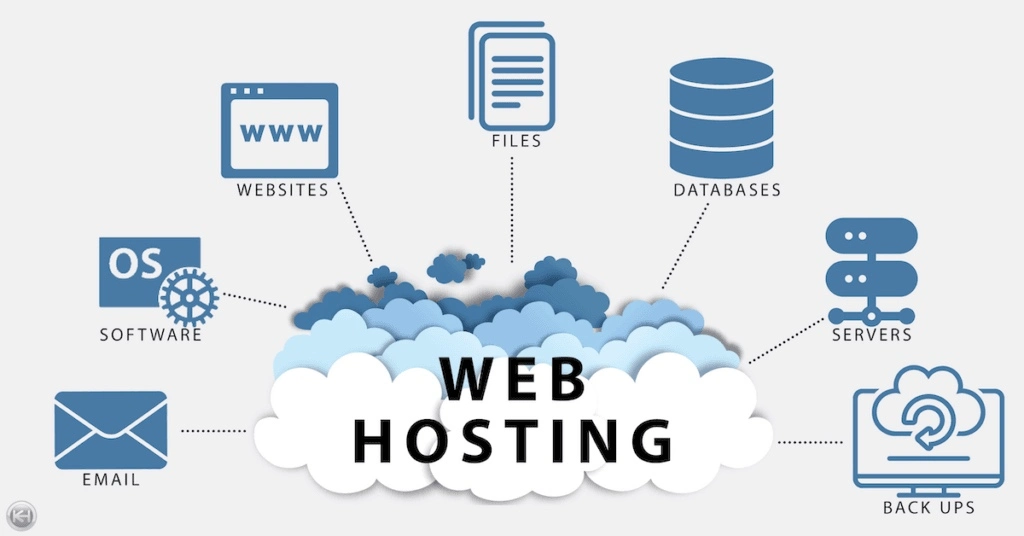
In today’s digital age, having an online presence is essential for businesses, organizations, and even individuals. A website serves as your digital storefront, and choosing the right hosting service is a critical step in bringing your website to life. But with so many options available, how do you decide which hosting service is best for you? This guide will break down the basics of website hosting and help you choose the right solution for your needs.
What Is Website Hosting?
Website hosting is a service that allows individuals and organizations to make their websites accessible via the internet. Essentially, hosting providers rent out space on their servers where your website’s files, images, and data are stored. When someone types your website’s URL into their browser, their computer connects to the hosting server, retrieves your site’s data, and displays it.
Types of Website Hosting
There are several types of hosting services, each catering to different needs and budgets. Here’s a breakdown of the most common options:
- Shared Hosting
- Pros: Cost-effective, easy to set up, and beginner-friendly.
- Cons: Limited resources, slower speeds during high traffic, and less control.
- Best For: Blogs, small business websites, and personal portfolios.
VPS hosting divides a physical server into virtual compartments, giving you dedicated resources and more control than shared hosting.
- Pros: Greater reliability, improved performance, and customizable settings.
- Cons: More expensive than shared hosting and requires some technical knowledge.
- Best For: Medium-sized websites, growing businesses, and online stores.
With dedicated hosting, you rent an entire server exclusively for your website. This gives you maximum control and resources.
- Pros: High performance, enhanced security, and complete control over server settings.
- Cons: Expensive and requires advanced technical expertise.
- Best For: Large-scale websites, enterprise-level businesses, and high-traffic e-commerce sites.
Cloud hosting uses a network of servers to host your website, providing scalability and reliability.
- Pros: High uptime, scalability to handle traffic spikes, and pay-as-you-go pricing.
- Cons: Can be complex to manage and costs may vary based on usage.
- Best For: Growing websites, SaaS businesses, and unpredictable traffic patterns.
Managed hosting includes additional services like automatic updates, backups, and security features. It’s commonly used for platforms like WordPress.
- Pros: Saves time, enhanced security, and technical support included.
- Cons: More expensive than unmanaged hosting.
- Best For: Busy website owners, non-technical users, and WordPress sites.
Free hosting services are usually offered with limitations and are ideal for experimenting or personal use.
- Pros: Free of cost and easy to set up.
- Cons: Limited resources, ads displayed on your site, and lack of support.
- Best For: Hobby websites and experimenting with web development.
When evaluating hosting providers, consider the following factors to make an informed decision:
- Performance (Uptime and Speed): Ensure the hosting provider guarantees at least 99.9% uptime and offers fast load times.
- Scalability: Choose a hosting plan that can grow with your website as traffic and resource needs increase.
- Support: Look for providers that offer 24/7 customer support via live chat, email, or phone.
- Security: Check if the hosting service includes features like SSL certificates, malware protection, and regular backups.
- Pricing: Compare pricing plans and ensure there are no hidden fees. Many providers offer discounts for annual subscriptions.
- Ease of Use: If you’re new to website management, opt for a provider with an intuitive control panel and user-friendly tools.
- Special Features: Depending on your needs, you might want features like free domains, one-click installations, or advanced developer tools.
Here are some of the most popular and reliable hosting providers to consider:
- Bluehost: Great for beginners and WordPress users.
- SiteGround: Known for excellent customer support and performance.
- HostGator: Offers affordable plans and easy scalability.
- AWS (Amazon Web Services): Ideal for advanced users needing cloud hosting solutions.
- DigitalOcean: A favorite among developers for its flexibility and scalability.
Choosing the right hosting service depends on your website’s goals, technical expertise, and budget. If you’re just starting out, shared hosting or managed WordPress hosting might be the best option. For growing businesses or high-traffic websites, VPS or dedicated hosting could provide the reliability and performance you need. Always compare options carefully, prioritize essential features, and ensure the hosting provider aligns with your specific needs.
With the right hosting service, you’ll have a solid foundation to create and grow your online presence. Take the time to choose wisely and invest in a hosting solution that will support your website’s success.
